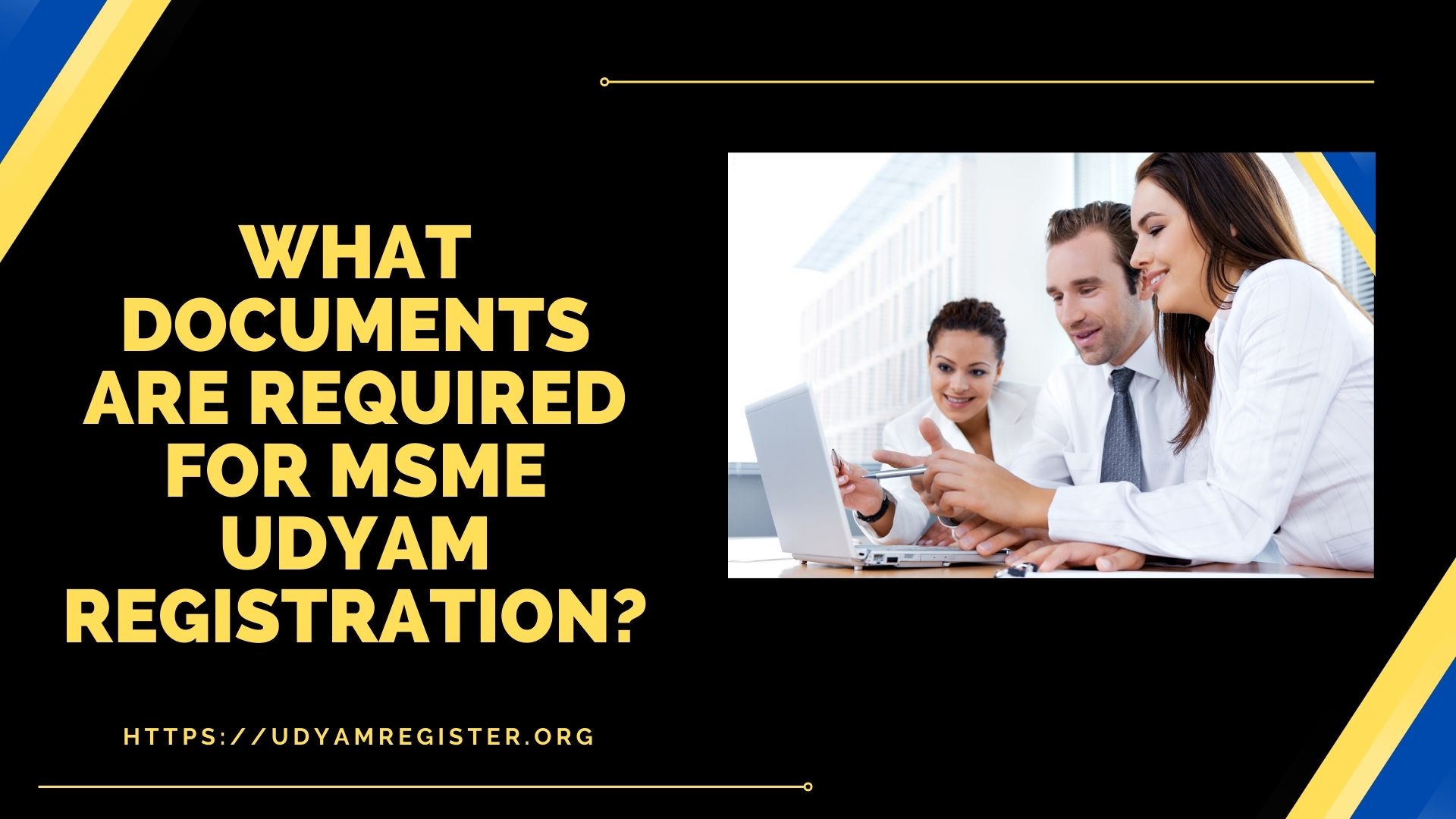
Introduction:
MSME Udyam registration is an important step for micro, small, and medium enterprises (MSMEs) in India. It enables them to avail various benefits and opportunities provided by the government. To complete the registration process, specific documents need to be submitted. In this article, we will discuss the essential documents required for MSME Udyam registration.
Documents Required for MSME Udyam Registration:
Aadhaar Card:
The Aadhaar card of the applicant is mandatory for Udyam registration. It serves as proof of identity and ensures that the registration is linked to a valid individual.
PAN Card:
The Permanent Account Number (PAN) card is another crucial document required for MSME Udyam registration. It helps in verifying the applicant’s financial details and facilitates smooth business transactions.
Business Address Proof:
To establish the existence of the MSME, a valid address proof is necessary. Documents such as electricity bills, rent agreement, or property tax receipts can be submitted as proof of the business address.
Bank Account Details:
Furnishing the bank account details of the enterprise is vital for Udyam registration. This includes the account number, bank name, and IFSC code. It ensures that financial transactions and benefits are directed to the correct account.
Business Incorporation Certificate (if applicable):
If the MSME is registered as a company or LLP, a business incorporation certificate is required. This document confirms the legal structure of the enterprise.
Partnership Deed (if applicable):
In the case of a partnership firm, a partnership deed must be submitted. It outlines the roles, responsibilities, and profit-sharing details among the partners.
Industry-specific Certifications:
Depending on the nature of the business, certain industry-specific certifications may be required. For example, manufacturing enterprises might need to submit certifications related to quality control standards, environmental compliance, or product testing. These certifications demonstrate the enterprise’s adherence to industry standards and best practices.
Sales and Purchase Invoices:
Providing sales and purchase invoices can serve as supporting documents for the registration process. These invoices help establish the business’s operational activity and financial transactions, showcasing its involvement in buying and selling goods or services.
Employee Details:
MSME Udyam registration requires information about the enterprise’s employees, including the number of workers employed. This data assists the government in assessing employment generation and monitoring labor-related policies.
Project Report or Business Plan:
In some cases, MSMEs may be required to submit a project report or a business plan outlining the enterprise’s objectives, strategies, and financial projections. This document gives insights into the business’s viability and growth potential.
Licenses and Permits (if applicable):
Certain industries or activities require specific licenses and permits to operate legally. For instance, businesses involved in food processing, pharmaceuticals, or hazardous materials may need to submit relevant licenses and permits as part of the Udyam registration process.
Partnership Authorization Letter (if applicable):
In a partnership firm, where one partner is authorized to represent and sign documents on behalf of the others, an authorization letter signed by all partners is necessary. This letter designates the authorized partner for the Udyam registration process.
Important Points to Consider for MSME Udyam Registration:
Document Format:
While gathering the required documents, it is important to ensure that they are in the prescribed format. The documents may need to be in PDF or JPEG format, with specific size restrictions. Adhering to the specified format ensures that the documents can be easily uploaded and processed during the registration process.
Document Validity:
Make sure that all the submitted documents are valid and up to date. Expired documents or those nearing expiration may lead to complications during the registration process. It is advisable to review the validity of each document and renew them, if necessary, before initiating the registration process.
Accuracy and Consistency:
Pay close attention to the accuracy and consistency of the information provided in the documents. Any discrepancies or errors may lead to delays or rejection of the registration application. Cross-verify all the details, such as names, addresses, and identification numbers, to ensure they match the information provided in other documents and records.
Translation and Notarization:
If any of the required documents are not in the official language of the registration authority or are issued in a foreign language, they may need to be translated into the required language. Additionally, certain documents may require notarization or attestation to establish their authenticity. It is essential to follow the specific guidelines provided by the registration authority regarding translation and notarization requirements.
Seek Professional Assistance:
MSME Udyam registration can involve complex procedures and documentation. If you are unsure about the process or find it overwhelming, consider seeking professional assistance. There are consultants, chartered accountants, or specialized agencies that can guide you through the registration process, ensuring that all the necessary documents are prepared accurately and in compliance with the registration requirements.
Conclusion:
Obtaining MSME Udyam registration can bring numerous advantages to micro, small, and medium enterprises in India. To ensure a smooth registration process, it is essential to gather and submit the necessary documents. The key documents required include Aadhaar card, PAN card, business address proof, bank account details, business incorporation certificate (if applicable), and partnership deed (if applicable). By fulfilling these requirements, MSMEs can avail the benefits provided by the government and access various opportunities for growth and development.





